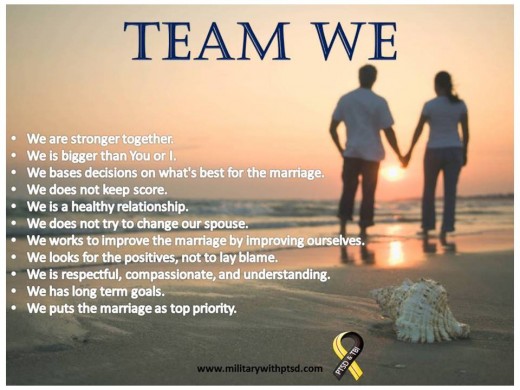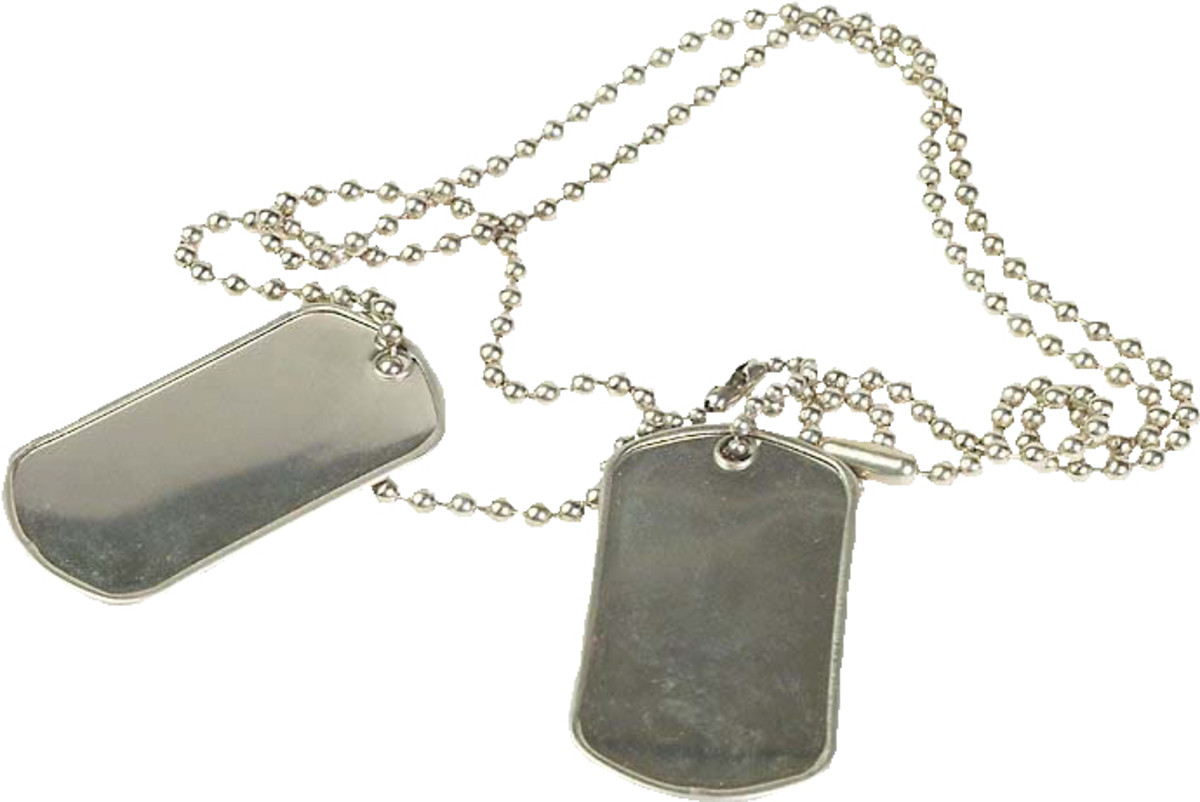Military Wife and PTSD
Experience
My husband served in the US Army. He was deployed once into Iraq, and was suppose to deploy again to Afghanistan. But God had other plans, he ended up not deploying. I personally am still trying to figure out what is worse, him staying behind or him going. While he was Rear detachment he faced many trails. Anyway, once he got out and we set on our adventure to move back home things started changing. We started arguing A LOT... But I never gave up, I was determined to figure out what was the cause of my husbands moodiness and just give up. I started doing my research. What I found out I wasn't sure if I even wanted to believe it myself. I thought "no, not my husband, my husband is stronger than that." Then we got into a real giant argument, and I only say that not because it had anything to do with our marriage, it wasn't about the finances(even though we were both jobless, lost our cars to repossession), or about our kids, it was about something so little and insignificant that we don't even remember it. These were our arguments constantly... This one was a big one because not only over something so little, but it lasted 4 hours or more left me in tears but my husband broken, he told me that he was just going to kill himself. That is when I knew that my worst fears had been shown to me. I stood in front of my husband and did not let him grab anything to cause harm to himself. Told him he needed help.
The Signs
These are the things to look out for, the signs that if a loved has experienced a traumatic event(combat related or not) these are PTSD.
- Reliving the event(a.k.a. re-experiencing symptoms)- Memories of the traumatic event can come back at any time. You may feel the same fear and horror you did when the event took place.This could include; flashbacks, nightmares, or even so far as to smelling, tasting, hearing what was absorbed during the event.
- Avoiding situations that remind you of the event-You may try to avoid situations or people that trigger memories of the traumatic event. You may even avoid talking or thinking about the event. Examples might be; avoiding places with crowds because they feel dangerous, you might avoid driving because you were in an accident, watching a movie that has a part in it that reminds you of what happened.
- Negative changes in beliefs and feelings-The way you think about yourself and others changes because of the trauma. This symptom has many aspects. You may not have positive or loving feelings toward other people and may stay away from relationships, You may think the world is completely dangerous, and no one can be trusted
- Feeling keyed up (a. k. a. hyper-arousal)-You may be jittery, or always alert and on the lookout for danger. You might suddenly become angry or irritable. This is known as hyper-arousal. This could trouble sleeping, trouble with concentrating, may get startled by loud noises or people sneaking up on you, or you may want your back to a wall if you are in a restaurant.
As I said before these are not limited to just combat, these could be any traumatic event. Such as being raped, getting robbed by a gun, getting in a car accident. Know the signs for your loved and watch closely. There are more signs and action you can look for these are just a few major signs and actions.

The Do Nots
As a spouse of a veteran who has PTSD I had to do reseach and talk with husband pychatrist for things not to do that could set off an episode. Here they are:
- Learn as much as you can about PTSD. The more you know, the better you and your family can handle PTSD.
- Offer to go to doctor visits with your family member. You can help keep track of medicine and therapy, and you can be there for support.
- Tell your loved one you want to listen and that you also understand if he or she doesn't feel like talking.
- Take a walk, go for a bike ride, or do some other physical activity together. Exercise is important for health and helps clear your mind.
- Encourage contact with family and close friends. A support system will help your family member get through difficult changes and stressful times.
- Agree that either of you can call a time-out at any time.
- Decide on a signal you will use to call a time-out. The signal can be a word that you say or a hand signal.
- Be a good listener. Don't argue or interrupt. Repeat what you hear to make sure you understand, and ask questions if you need to know more.
These are just a few things you can do to help your spouse with PTSD, you won't get everything perfect but you will have to work together. Most importantly you need to take care of yourself, how can you expect to help others if you are falling apart from the seams. Just let them know that you are there and willing to support and listen to them in there time of need. They need you in this kind of crisis more then ever.
My daily reminder to help my husband.

The Next Step
The next step for you as a loved one with Post Tramatic Stress Disorder is to be there for them. I have heard so many stories looked at too many statistics they say spouses leave when there are some rough times, and believe me PTSD has been one crazy, wild, rough, emotional, and hardest times you will ever face. So they NEED you to help them. If I had left my husband after that last argument he would be a statistic, he would be one of the 22 a day had I not stepped in the middle and helped him get help with counseling. It is up to us as wives, mothers, daughters, sons, fathers, and husbands to help them. Raise them up. They will never be the same, but we can raise there confidence, show them love so they can in turn show love, and bring back the happiness.
A song I stumbled upon
"A Soldier's Memoir" PTSD Song by Joe Bachman OFFICIAL MUSIC VIDEO
Really puts things in perspective. I had stumbled upon while doing research about PTSD for myself and my husband. It's a good one. Hope you enjoyed reading. Until next time...






